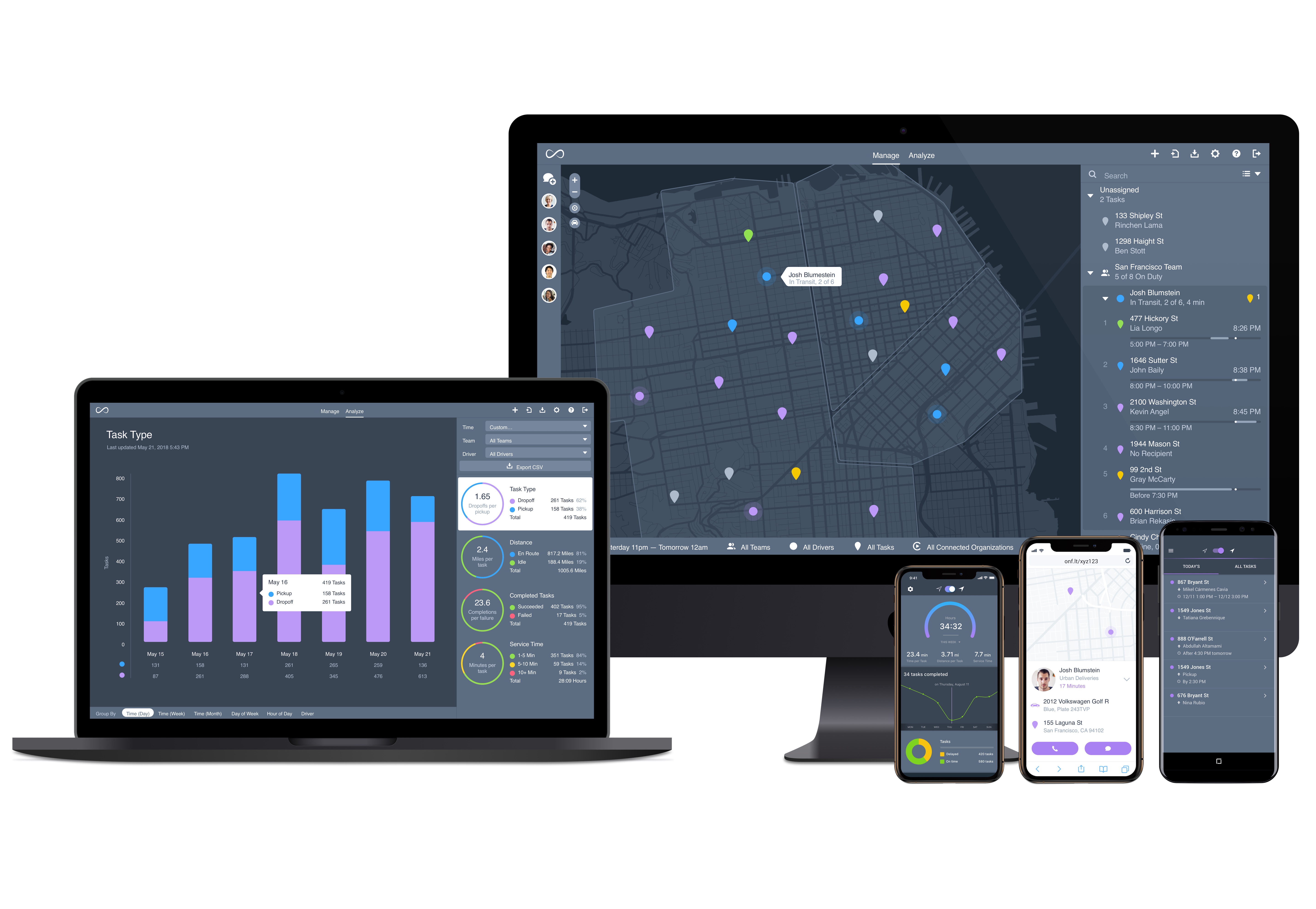The Station is a weekly newsletter dedicated to all things transportation. Sign up here — just click The Station — to receive it every Saturday in your inbox.
Hello and welcome back to The Station, a newsletter dedicated to all the present and future ways people and packages move from Point A to Point B.
The dog days of summer are almost upon us. Technically, we won’t enter this period until July 22. In normal times, vacation season would be well underway and the hit song of the summer would be established and a regular guest at every beach party, barbecue and dance club. That’s not exactly what’s going down this summer. However, we do have ourselves a hit financial instrument of the season. The SPAC, or Special Purpose Acquisition Company, is this summer’s “Seniorita.” Everywhere you turn, there it is.
More on the SPACs and other fun stuff below. Vamos!
Reach out and email me anytime at kirsten.korosec@techcrunch.com to share thoughts, criticisms, offer up opinions or tips. You can also send a direct message to me at Twitter — @kirstenkorosec.
Micromobbin’
We know that COVID-19 has changed the way we work and move around cities when we do leave our homes. Public transit ridership has dropped in many dense urban areas. And so did shared scooter and bike ridership, although there is evidence that these two modes of transportation are rebounding.
Micromobility company Lime looked at its ridership data the month before the lockdown began and compared it with the month after. Lime CEO Wayne Ting noted in a blog post this week a few emerging trends. People are riding scooters 34% longer and 18% farther; and they’re using them for recreation and to run errands. Lime also discovered that travel is starting in neighborhoods more often than in pre-COVID times.
And bikes, as we’ve noted here before, are back and more popular than ever. Lime said its e-bike rental service has seen record usage, with users taking longer journeys and the bikes being used more frequently. In London, Lime recorded its highest-ever usage in a single day last month, with over 4,000 new users, the company said.
While the survey by Lime might seem self serving, the data has been compelling enough to change how, and more specifically where, it operates. The company has taken the bikes and scooters out of areas typically dominated by tourists and moved them into neighborhoods. It’s also rolled out new flex passes and is finally bringing some of those Jump bikes back to cities.
In other micromobility news …
In the mopeds arena, TechCrunch’s Catherine Shu examines Taiwan-based WeMo and its plans to expand internationally.
Meanwhile, shared electric moped startup Revel received a permit that will allow it to operate in San Francisco, beginning in August. Revel will start with a fleet of 432 mopeds featuring a new paint scheme and a more powerful engine to help riders get up and over the city’s infamously steep hills.
Over in the bikes world, a new brand has emerged called Superstrata that hopes to standout with its 3D printed carbon fiber unibody that is based on precise measurements of each customer. Superstrata told TechCrunch that this translates into more than 250,000 unique combinations
But Superstrata is not just some new bike startup. It’s a new brand under Arevo, the Bay Area-based additive manufacturing startup. Superstrata is meant to demonstrate Arevo’s push into manufacturing as a service and composite additive manufacturing.
The Silicon Valley Bicycle Coalition will hold its two-day summit virtually next month. Registration is $50. While many of the discussions will have a local focus, these are universal issues that cities around the U.S. and beyond face. Expect discussions on slow streets movement, equity, bikeway designs and safety.
Deal of the week
Remember way back in January when it looked like direct listings were the going to be the favored method to bringing a company public? Welp, direct listings are out and SPACs are in.
Electric car maker Fisker has become the latest example of this trend. The company, which just raised $50 million from investors, said it reached an agreement to merge with Spartan Energy Acquisition Corp., a special purpose acquisition company sponsored by an affiliate of Apollo Global Management Inc. As a result, Fisker will become a public company with a valuation of $2.9 billion. The transaction is expected to close in the fourth quarter.
Fisker said this will provide the funding it needs to bring its first product, the all-electric Fisker Ocean SUV, to production in late 2022.
The agreement marks the latest company to turn to SPACs in lieu of a traditional IPO process. Online used car marketplace startup Shift Technologies, Velodyne Lidar and Nikola Motor have all gone public by merging with a special-purpose acquisition company.
SPACs are not new, even if you’re learning about them for the first time. Would a SPAC by any other name smell as sweet? Why yes, yes it would. These have been around for decades and have gone by different names, including “blind pools” and “clean shell companies.” These blank-check companies — see another name — is a corporation that has no defined business plan or purpose other than to raise money from public markets to acquire a private company.
Other deals that got our attention this week …
Adam Neumann, the controversial co-founder and former CEO of WeWork, is back and investing in the shared economy. This time with a focus on mobility.
Neumann’s family office, 166 2nd Financial Services, invested $10 million into GoTo Global as part of a $19 million Series B round. GoTo Global is a shared mobility company that operates in Israel and Malta and aims to expand into Europe later this year. The company is aiming to cover the entire range of shared vehicles from cars and mopeds to bicycles and electric scooters.
Neumann has a 33% stake in GoTo Global and can appoint one board member on his behalf. Existing shareholder Shagrir Group Vehicle Services, a publicly traded Israeli company, also participated in the round.
Drover, a UK startup that provides access to flexible car subscriptions for private users, raised £20.5 million ($25.7 million) in a round of funding co-led by Target Global, RTP Global (the Russian company formerly known as ru-Net) and Autotech Ventures. New investors Channel 4 Ventures and Rider Global, as well as previous backers Cherry Ventures, BP Ventures, Partech, Version One and Forward Partners also participated. Drover did not disclose its valuation. The company has raised £27.5 million to date.
Chinese electric automaker Li Auto filed for a $100 million IPO and plans to list on the Nasdaq. (missed this filing last Friday). The company recently raised $550 million.
Navistar and self-driving trucks startup TuSimple deepened their two-year relationship and announced plans to develop and begin producing autonomous semi trucks by 2024. Navistar also took an undisclosed stake in TuSimple. The plan is to move away from retrofitting the Navistar International commercial trucks that TuSimple currently uses and instead develop semi trucks specifically designed for autonomous operations.
Self-driving trucks startup Plus.ai is in talks to raise $60 million, The Information reported. The fundraising for the company that is based in China and the U.S., is still under negotiation. Hong Kong-based investment and securities firm Guotai Junan International is expected to lead the round that could value Plus.ai between $600 million to $1 billion.
Skydio raised $100 million in a Series C funding round led by Next47. New investors Levitate Capital and NTT DOCOMO Ventures joined the round with existing backers a16z, IVP and Playground. The funding will be used to accelerate product development efforts, expand its go-to-market strategy beyond consumer applications to enterprise and public sector drone technology.
Uber acquired Routematch, an Atlanta-based company that provides software to transit agencies as the ride-hailing company looks to offer more SaaS-related services to cities. Expect more public transit SaaS deals.
Uber did not share terms of the deal. This doesn’t appear to be a minor “acqui-hire,” in which a company is purchased to land a few talented employees. Instead, Uber is making a strategic acquisition for a company that has developed software used by more than 500 transit agencies. The operations of the 170-person company will continue and CEO Pepper Harward will remain.
More Uber news. This time the company is reportedly talking with investors about taking a stake in its Uber Freight division, Bloomberg reported. Discussions are underway to raise $500 million, a round that would give the freight business a standalone valuation of about $4 billion after the deal.
Startup spotlight
The startup spotlight is like a mini version of my “startup editions” newsletter that was sent out earlier this month. I’m not using a scientific method to pick these startups and when I do, it might not even be tied to a particular announcement. Basically, if I see something interesting I will put it here.
Which brings me to Onfleet, a SaaS company that created a platform for last-mile delivery services across a wide array of industries. The software platform handles the logistics of delivery such as route planning, dispatch, real-time tracking, analytics and communications for companies like Imperfect Foods, MedMen and Total Wine & More. As you might suspect, deliveries are hot right now. But that doesn’t mean Onfleet hasn’t had to adjust.
Co-founder and CEO Khaled Naim and I spoke awhile back about how the company has had to change in response to COVID-19. For instance, the company created a contactless signature feature that it rolled out in early May. Now its corporate customers can include a special URL in the SMS notifications that go out to recipients when a driver gets close to their destination. The user, say a person waiting for that wine or beer delivery, is then prompted to sign for the package on their phone. It has been a critical addition for regulated industries such as alcohol, cannabis and pharmaceuticals, where a signature is legally required, Naim said, noting these are significant segments for the company.
Onfleet has seen deliveries explode since March and is now averaging more than one delivery per second throughout the week, with peaks of more than three deliveries per second, Naim said.
Global delivery volume is up with notable spikes in alcohol, cannabis, grocery, pharmacy, prepared meals, meal kits and restaurants. He added that a handful of sectors like catering, laundry and dry cleaning have been hit pretty hard by COVID-19.
There are new segments emerging as well. For instance, seafood distributors and breweries, which once were delivering to restaurants, have shifted to business-to-consumer operations. Pet food deliveries are also up as local pet stores find new opportunities to generate revenue.
“A lot of our customers have been stretched and are trying to serve an increase in demand, while at the same time struggling with a shortage of drivers,” Naim said.
In response, Onfleet created a delivery driver job board to connect drivers with delivery gigs globally. And as global demand has surged, Onfleet had to add four languages to its driver app, including Italian, German, Dutch, and Arabic. French and Spanish have been available for awhile now.
If you have a mobility startup that has adjusted its business model due to COVID-19 or have some interesting data to share, email me. As always, I never promise coverage but I will take a look.
Notable reads and other tidbits
More transportation news! Let’s get to it.
Autonomous vehicles
AutoX, autonomous vehicle startup backed by Alibaba, has been granted a permit in California to begin driverless testing on public roads in a limited area in San Jose.
German lawmakers are preparing legislation that could commercialize driverless vehicle technology by next summer. The landmark legislation, if passed, would provide a long overdue framework that would cover both homologation and road traffic requirements for robotaxis in which the computer controls the vehicle at all times, Automotive News Europe reported.
Nuro posted a blog in Medium about food deserts and the role that autonomous delivery bots will play in providing more healthy options to underserved communities. The company calculated how many homes could theoretically be reached within 30 minutes from all major supermarkets with a self-driving delivery vehicle operating at speeds up to 45 mph. Nuro compared that data to the U.S. Department of Agriculture’s (USDA) data on food desert locations. The startup said it could reach 14 million low-income households in food deserts nationwide, or 70% of the total low-income population in food deserts. (Again, this is all theoretical at this point. I noted here to illustrate potential scale and the company’s ambitions.)
SAFE published a report called Fostering Economic Opportunity through Autonomous Vehicle Technology that aimed to better understand the transportation challenges in low-income communities. The study concluded that about two-thirds of Americans live in neighborhoods that are beyond their means because of largely unseen transportation costs. SAFE, of course, sees autonomous vehicles as a way out. The hypothesizes that AV transportation could reduce household costs by as much as $5,600 per household.
Cities
Berkeley is taking police officers out of traffic enforcement and replacing them with unarmed employees of a newly formed Department of Transportation, per Streetsblog.
Silicon Valley cities San Jose, Cupertino and Santa Clara have been mulling a transit system that would connect its growing airport with major employers and other high-profile destinations along the Stevens Creek Boulevard corridor, an area that includes Apple headquarters. The group asked companies to submit proposals for innovative transit modes. A consultant, who hired to evaluate the proposals from companies that included The Boring Company, BYD and Bombardier, has released its findings. San Jose Mercury News has the breakdown of the top proposals, which included personal pod cars, hyperloop and driverless shuttles.
It’s electric
Dan Brouillette, the U.S. Secretary of Energy, announced $139 million in federal funding for 55 projects that will support advanced vehicle technologies. Six of these innovative projects will be led by teams in Michigan.
BMW struck a long-term deal with Swedish-based Northvolt for $2.3 billion worth of battery cells. The battery cells will be produced in Europe at the Northvolt factory that is under construction in northern Sweden.
Nissan is moving on from the Leaf. The automaker unveiled the Nissan Ariya, an all-electric SUV with an estimated 300 miles of range and a starting price tag of $40,000 that marks the beginning of a four-year plan aiming for growth and profitability. The Nissan Ariya will first be sold in Japan in mid-2021, before heading to dealerships in the U.S. and Canada later in the year, the company said in digital event in Yokohama, Japan.
Tesla has secured more than $61 million of tax incentives if it builds a $1.1 billion factory near Austin, Texas. Commissioners in Travis County, home to Austin and the possible next Tesla factory, approved Tuesday property tax breaks worth at least $14.7 million — and potentially more — over 10 years. The incentives are on top of $46.6 million in property tax abatement that the Del Valle School District Board approved earlier this month.
Elon Musk disputed a German court ruling that bans the company from using on its website or other advertising terms like Autopilot or “full potential for autonomous driving.”
Future Cars!
Automakers are rethinking the interior of vehicles, the WSJ reports.
Ford relaunched Bronco after a 24-year hiatus. There was an abundance of coverage on the Bronco 2, Bronco 4 and Bronco Sport — including my story that looked at how the automaker leaned heavily on nostalgia, customization, functional design and technology.
And finally, as autonomous vehicle technology companies continue the slog towards commercially deployed Level 4 trucks and robotaxis, automakers have turned to advanced driver assistance systems. It’s a trend that I first noticed back in late 2018 and into early 2019. Now, it’s at full tilt as automakers race to offer hands-free — but driver engaged — systems. Reuters examines the ramifications and challenges to this pursuit.
See ya’ll next week.
3G wifi Sahaha bộ phát wifi 3g/4g sim 3g/4g thuê wifi du lịch máy phiên dịch
3G wifi Sahaha
https://3gwifi.net/
368 đường láng, Đống Đa, hà nội
19002106
giaiphap3g@gmail.com
https://3gwifi.net/danh-muc/bo-phat-wifi-4g/
https://3gwifi.net/danh-muc/usb-4g-dcom-4g/
https://3gwifi.net/danh-muc/sim-3g/
https://3gwifi.net/danh-muc/wifi-du-lich/
https://3gwifi.net/danh-muc/may-phien-dich/
https://goo.gl/maps/W9Wk6vrue6aW8yuP7
Sahaha cung cấp usb 4G✅ Dcom 4G✅ Sim 4G✅Bộ phát wifi 4G chính hãng✅ Uy tín Giá rẻ nhất✅ 19002106











Không có nhận xét nào:
Đăng nhận xét